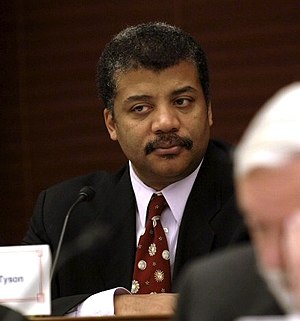 This post is presented by SBE, the Society for Biological Engineering--a global organization of leading engineers and scientists dedicated to advancing the integration of biology with engineering.
This post is presented by SBE, the Society for Biological Engineering--a global organization of leading engineers and scientists dedicated to advancing the integration of biology with engineering.

Watch the full episode. See more NOVA scienceNOW.
When all of the cells have been removed, they are left with a translucent scaffold of the organ that only contains the protein framework of the organ. They can then drip in cells from the transplant recipient herself and the organ becomes restored and transplantable. Because it is made of the patient's cells, she will not reject the organ. This method was used to replace the lungs of a woman from Barcelona and she now lives a normal life free of tuberculosis.What are your thoughts on this new finding in biological engineering?
images of Tyson and NOVA via Wikimedia Commons.
Comments
- Log in to post comments
- Log in to post comments





